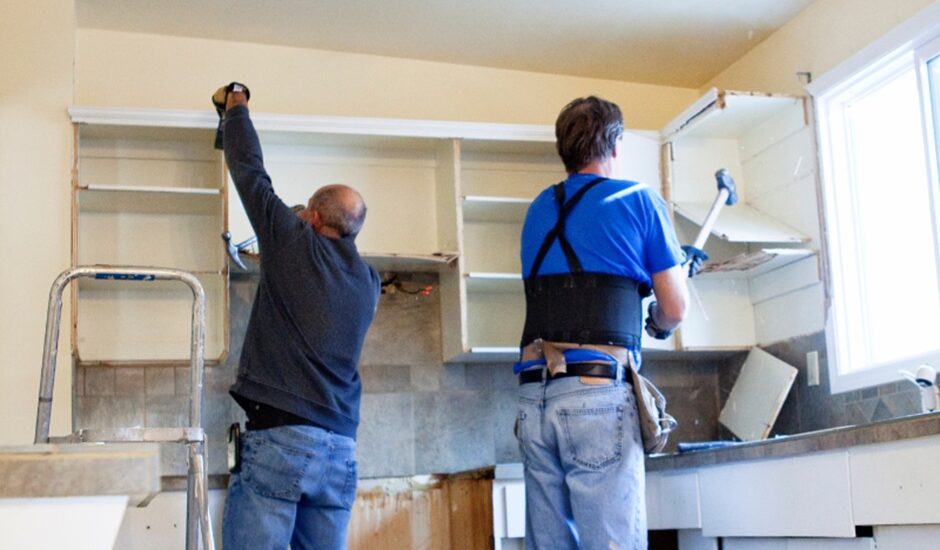Addition and alteration (A&A) work encompasses the adjustments and enhancements carried out on current properties. These modifications can vary from small changes, like replacing floor tiles, to significant additions, such as constructing new rooms or expanding the building.
Discover the influence of A&A works on property worth, allowing property owners to decide if this project is suited for their area.
Enhancing Property Value Through A&A Works
A&A works can significantly enhance the value of a property. Here’s how:
- Increased Usable Space: Adding extra rooms or expanding existing spaces can make a property more functional and appealing. For instance, adding an extra bedroom or a home office can cater to the growing demand for remote workspaces, thereby increasing the property’s market value.
- Modernisation: Updating an old property with modern amenities and finishes can attract higher-paying buyers or tenants. Modern kitchens, bathrooms, and energy-efficient systems are highly desirable and can set a property apart from others in the market.
- Improved Aesthetics: Aesthetic improvements, such as fresh paint, landscaping, and interior redesign, can make a property more attractive. First impressions matter, and a well-maintained and visually appealing property can command a premium price.
- Enhanced Functionality: Structural alterations that improve the flow and functionality of a property can increase its value. For example, open-plan living spaces are popular and can make a property feel larger and more inviting.
Financial Considerations of A&A Works
While A&A works can boost property value, they also involve significant financial considerations:
- Cost of Renovation: The cost of A&A works can vary widely depending on the scope and complexity of the project. Budgeting carefully and ensuring the expected increase in property value justifies the investment are necessary.
- Financing Options: Homeowners may need to explore financing options such as home equity loans or personal loans to fund A&A projects. It’s crucial to consider the interest rates and repayment terms to avoid financial strain.
- Return on Investment (ROI): Not all A&A works yield the same ROI. Homeowners should prioritise projects that offer the highest return. For example, kitchen and bathroom renovations typically provide a higher ROI than other improvement types.
ALSO READ: Maximising Property Value: Understanding the Valuation of Houses in Singapore

Legal and Regulatory Considerations
Undertaking A&A works involves navigating various legal and regulatory requirements:
- Building Permits and Approvals: Depending on the nature of the A&A works, homeowners may need to obtain building permits and approvals from local authorities. Failure to comply with these regulations can result in fines and legal complications.
- Zoning Laws: Zoning laws dictate what modifications can be made to a property. Homeowners should ensure that their planned A&A works comply with local zoning regulations to avoid legal issues.
- Contractor Selection: Choosing a reputable and licensed contractor is essential to ensure that the A&A works are completed to a high standard and in compliance with regulations. It’s advisable to check references and reviews before hiring a contractor.
Potential Risks and Challenges
A&A works come with inherent risks and challenges that homeowners need to be aware of:
- Cost Overruns: Unforeseen issues during renovation can lead to cost overruns. It’s necessary to have a contingency budget to cover unexpected expenses.
- Project Delays: Delays are typical in renovation projects due to various factors such as weather conditions, supply chain disruptions, and contractor availability. Homeowners should plan for potential delays and communicate regularly with their contractors.
- Impact on Daily Life: A&A works can disrupt daily life, especially if homeowners live on-site during the renovation. Planning and communication with the contractor can help minimise inconvenience.
Conclusion
Addition and alteration projects can substantially affect the property’s value, providing various advantages like expanded living space, updated design, enhanced visual appeal, and improved functionality. Nevertheless, homeowners need to be mindful of the financial, legal, and logistical aspects that come with such endeavours. With thorough planning and awareness of the potential consequences, homeowners can successfully utilise renovation and modification projects to elevate their property’s worth and attractiveness in the real estate industry.
Visit Colebuild to unlock the full potential of your property now!






